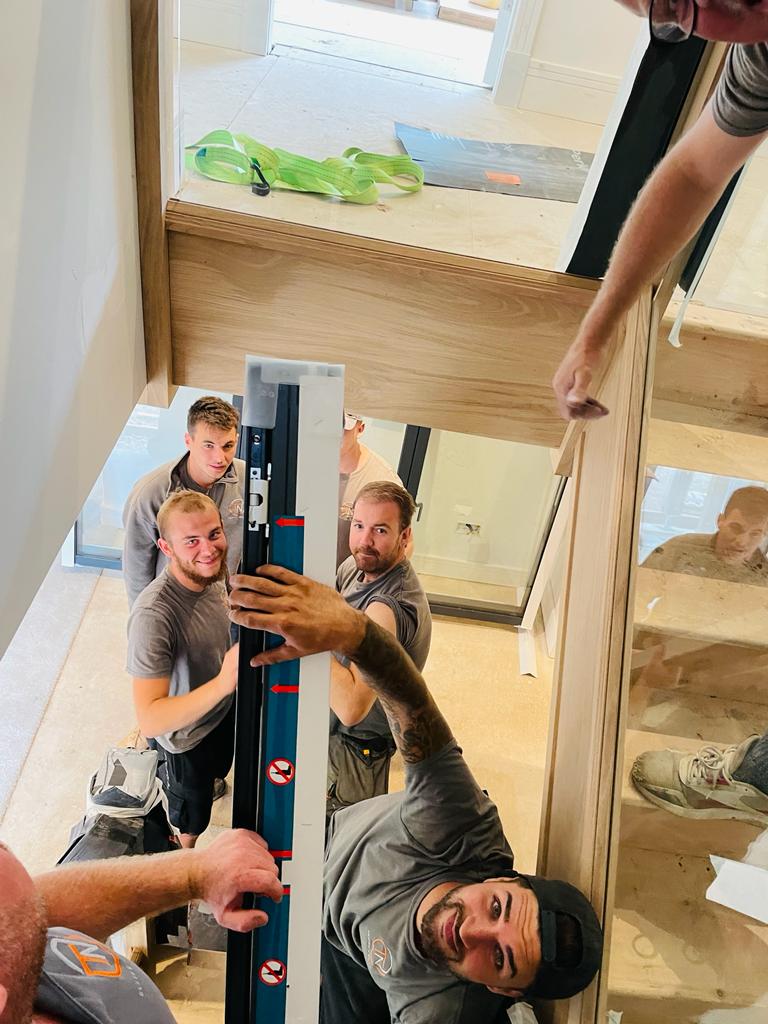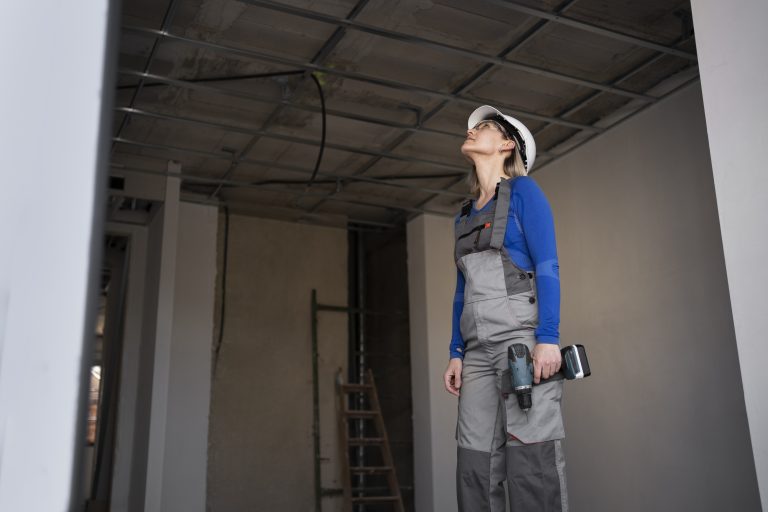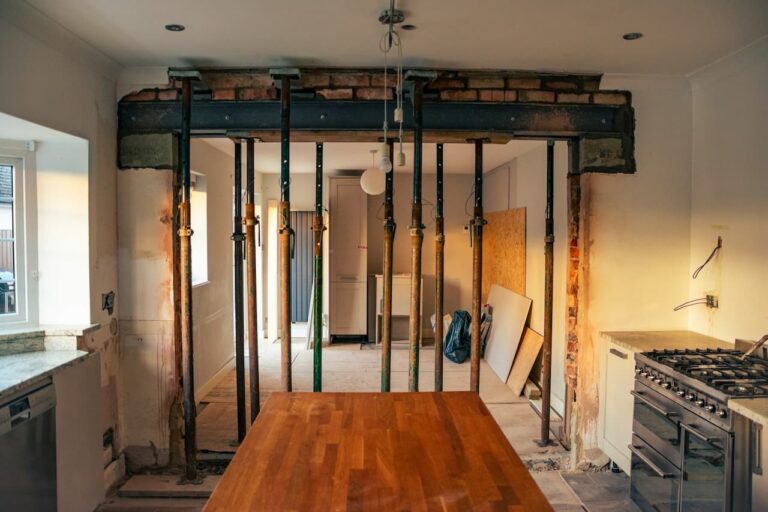Finding reliable builders and tradespeople can feel daunting, especially with the risks that come from hiring the wrong person or company. Poor workmanship, missed deadlines, and hidden costs can transform your dream project into a nightmare. However, with the right approach, you can find trustworthy professionals who deliver exceptional results. Whether you are looking to get a new home extension, would like to refurbish, or build an entirely new home, here’s how to make smarter choices when hiring the people to complete the project.
Understanding Your Needs Before Hiring
Before you even start searching for a builder or tradesperson, while not essential, it’s a huge benefit to define exactly what you need. A clear vision for your project simplifies the hiring process and ensures you find the best match for the job. Of course, sometimes you only have an idea of what you are looking for. If this is the case, make sure to write down as much information as you can, as well as any questions that you have regarding where you need help with design, materials and inspiration.
Defining the Scope of Your Project
Are you planning an extension, a full refurbishment, or just simply want a new kitchen? Define the work required in detail. Write down everything, from materials that you want to use, to specific areas needing attention. This helps potential tradespeople provide accurate quotes and ensures both parties are on the same page.
Prioritising Required Skills and Experience
Does your project require licensed electricians, certified plumbers, or specialists in heritage restorations? Highlight the technical skills and experience you need. For example, a kitchen refurbishment often demands someone skilled in carpentry, plumbing, and electrics. By identifying these specifics upfront, you’ll avoid wasting time on unsuitable design and building companies.
Setting a Budget and Timeline
Establishing realistic budgets and timeframes is crucial. Builders work more efficiently when they know your financial constraints and deadlines. Always leave some flexibility for unexpected costs or delays. Include this information in your conversations so tradespeople can assess whether they can meet your expectations.
Researching and Shortlisting Prospective Companies
Once you know what you need, it’s time to find the right builder or tradesperson. A little research goes a long way in separating the reliable professionals from the ones you’d rather avoid.
Utilising Trusted Sources for Recommendations
Ask friends, family, or neighbours if they’ve worked with someone they trust. Local community groups on social media can also be invaluable for leads. You could also check review platforms like Google Reviews and Checkatrade, which connect you with highly-rated professionals.
Verifying Credentials and Qualifications
It’s essential to confirm that your chosen tradespeople are properly accredited. Check their licences, insurance policies, and certifications. For instance, gas engineers in the UK should be registered with Gas Safe to legally perform work. Hiring someone who skips these qualifications could result in unsafe work—or worse.
Evaluating Online Presence and Reviews
A strong online presence can tell you a lot about a builder’s reputation. Look for reviews, ratings, and portfolios on verified platforms. While you should take overly positive or negative reviews with a pinch of salt, patterns of complaints like missed deadlines or unclean work sites are definite red flags.
Be cautious of online reviews and verify their authenticity whenever possible. One way to do this is by checking the reviewer’s history to see if they’ve reviewed other companies. If they have, it increases the likelihood that the review is genuine.
Do Background and Financial Checks
Before committing to a builder or tradesperson, take the time to conduct background and financial checks. This can save you from potential issues later on.
Check for Past Disputes or Complaints
Research whether the individual or company has been involved in any legal disputes or has a history of complaints. This information is often available through local trading standards or online forums.
Check for Financial Stability
This step helps you assess the company’s ability to complete your project without unexpected delays or financial troubles. Start by checking their financial statements on Companies House to verify their solvency and review their payment history through a credit agency like Experian. A solid financial background often reflects a company’s professionalism and stability, while any signs of insolvency or overdue payments should raise red flags. Taking the time to perform this due diligence can save you from costly risks and ensure your project is in capable hands.
Conducting Interviews and Assessing Compatibility
Meeting potential tradespeople face-to-face (or via video calls) helps establish whether they’re the right choice for your project. Clear communication and professional behaviour are key indicators of reliability.
Asking the Right Questions
Prepare a list of questions to find out experience and expertise. For example:
- Have they worked on similar projects?
- How do they handle unexpected issues during work?
- Do they offer guarantees or warranties?
Their answers will reveal not only their experience but also how they approach problem-solving.
Requesting References and Visiting Past Projects
Always ask for references from past clients. If possible, visit completed projects to assess the quality of work. This step helps verify their claims and provides peace of mind. A reputable tradesperson will never hesitate to provide references.
Assessing Communication and Professionalism
Pay close attention to how they communicate. Are they punctual for meetings? Do they respond promptly to emails or calls? Clear, respectful communication usually indicates how they’ll perform during the project.
Securing a Written Contract
A handshake and verbal agreement aren’t enough. A written contract protects both you and the tradesperson, clearly outlining expectations and reducing misunderstandings.
Key Elements of a Builder’s Contract
Make sure the contract includes:
- Detailed project description
- Schedule of works
- Payment terms and schedules
- Start and finish dates
- A plan for resolving disputes
With everything set out in writing, you’re less likely to encounter issues.
Handling Variations and Unexpected Changes
Projects don’t always go to plan, so include clauses to manage changes. Whether it’s delays due to bad weather or adjustments to the design, ensure you know how any additional costs will be handled.
Ensuring Warranty and Post-Project Support
Ask about warranties for the work performed. Reliable builders often offer guarantees covering their work for a specific period. This gives you peace of mind that they’ll address any issues after completion.
Final Thoughts
Hiring reliable builders and tradespeople takes time and effort, but it’s worth it to avoid costly problems. Define your project’s needs, research carefully, and prioritise communication. When making the hiring decision for your new home extension always secure a written contract to protect your investment. By taking these steps, you’ll minimise risks and ensure your project runs as smoothly as possible. So, take the time to vet prospective companies thoroughly; it’s a decision you won’t regret.







